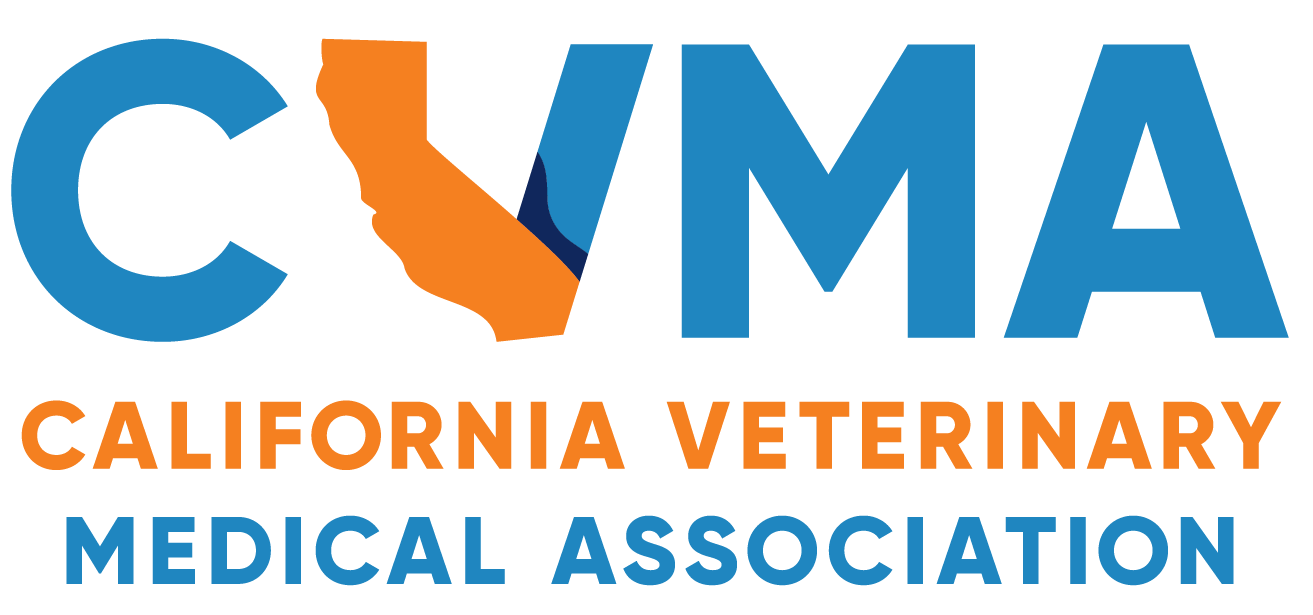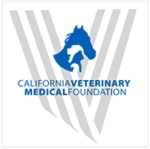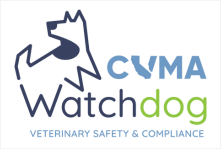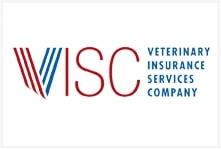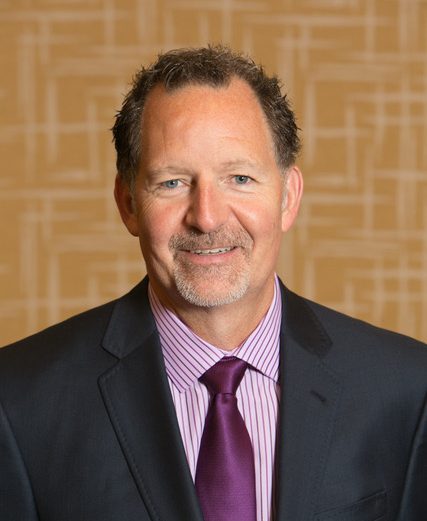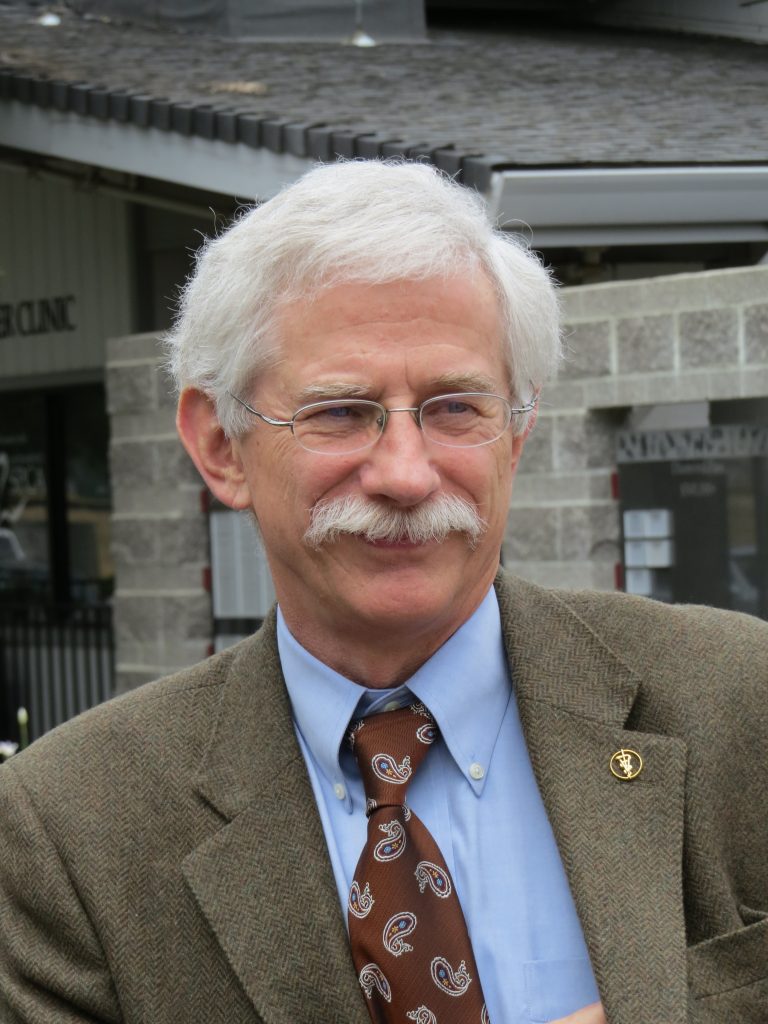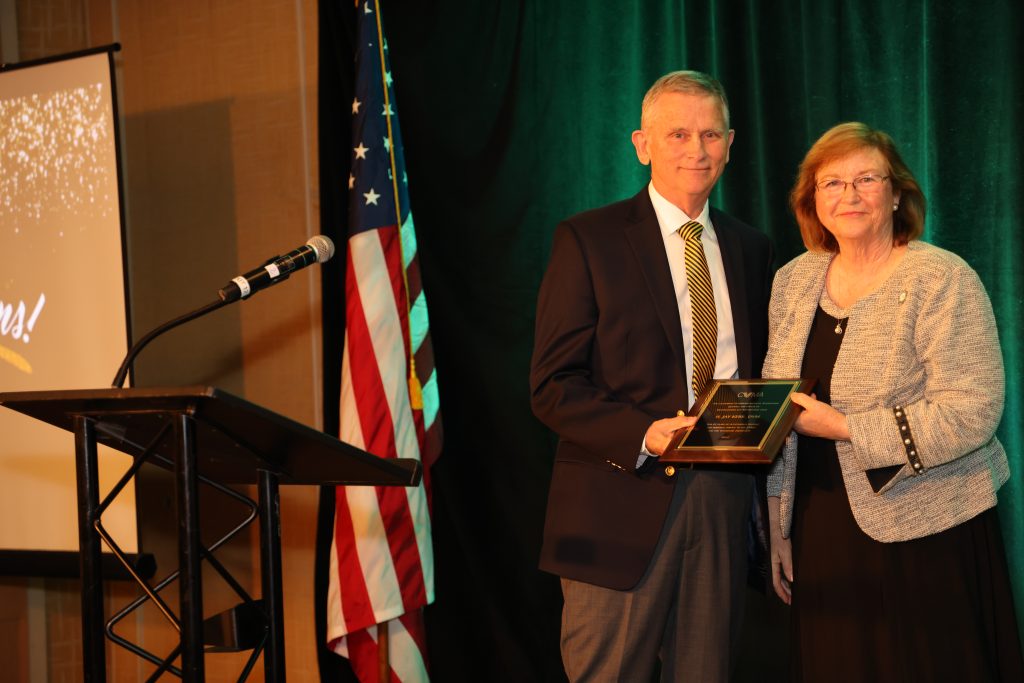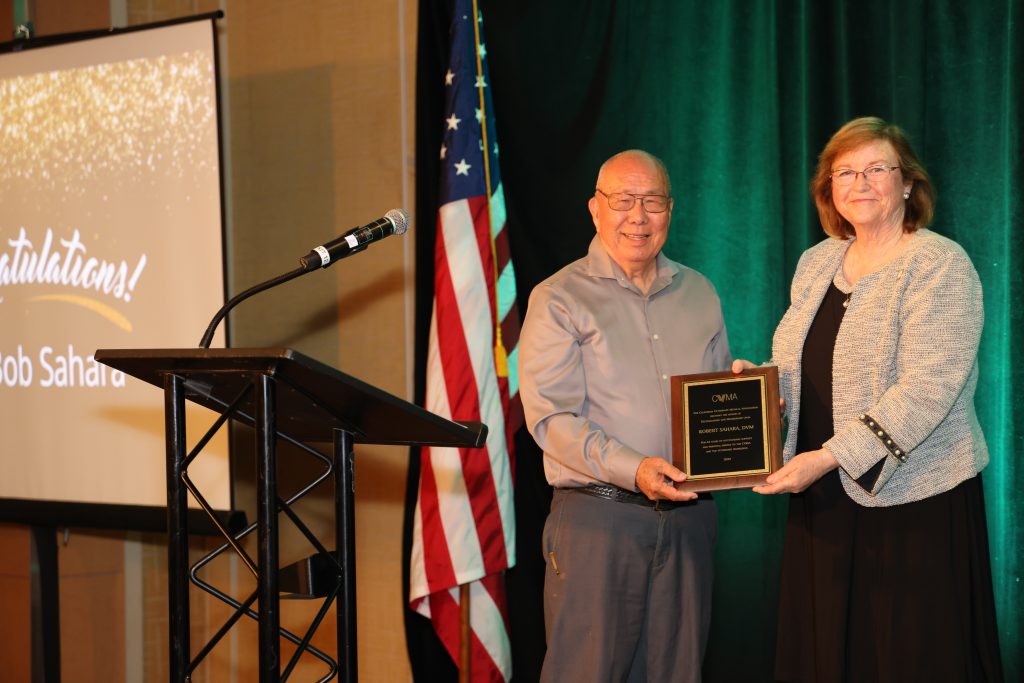Over the past 45 years, Dr. Chris Cowing has led the CVMA with an infectious enthusiasm for serving organized veterinary medicine. A born leader appreciated for his humility and humor, Dr. Cowing has earnestly thrown himself into a number of CVMA leadership roles throughout the years. His extensive history at the CVMA includes serving as the President from 2012–2013 and two consecutive six-year terms as the CVMA’s District IX Governor.
Dr. Cowing’s many accomplishments as CVMA President include playing an instrumental role in the defeat of AB 2304, a bill that would have allowed laypersons to clean animals’ teeth. This victory for the CVMA concluded a nearly decade-long fight to ensure that only licensed veterinary professionals are permitted to perform veterinary dentistry.
Dr. Cowing has also served in leadership roles for two of the CVMA’s crown jewels: the California Veterinary Medical Foundation (CVMF), the CVMA’s charity arm, and Veterinary Insurance Services Company (VISC), the CVMA’s insurance brokerage. Dr. Cowing served as the CVMF’s Board President for two terms spanning some of the worst wildfires in California history, including the Carr Fire, Caldor Fire, Tubbs Fire, and Camp Fire. During this time, he ensured that charitable contributions from the CVMF were effectively transferred to veterinarians and practices affected by the fires.
More recently, Dr. Cowing oversaw the growth of the California Veterinary Medical Reserve Corps (CAVMRC) by securing the purchase of its mobile command center and trailer, which will significantly increase CAVMRC’s ability to provide veterinary care during disasters. As a long-time and current member of the VISC Board of Directors, Dr. Cowing has pored over countless complex insurance issues to make sure the program stays financially sound and relevant. In doing so, Dr. Cowing has played—and continues to play—a significant role in keeping one of the CVMA’s most utilized and important services not only operative but prosperous.
“I vividly recall meeting Chris during his first meeting on the [Board of Governors],” says Dr. Jay Kerr, CVMA past-president and 2022 Distinguished Life Membership recipient. “Fifteen years later, I think there are a limited few that can match [his] contributions to CVMA.”
Dr. Cowing retired from practicing veterinary medicine in 2021 after 47 years of service, but he continues to be deeply involved in the CVMA, including serving on the Finance Committee, Legislative Committee, Political Action Committee, Ways and Means Committee, VISC Board, and as an alternative delegate of the CVMA House of Delegates.
